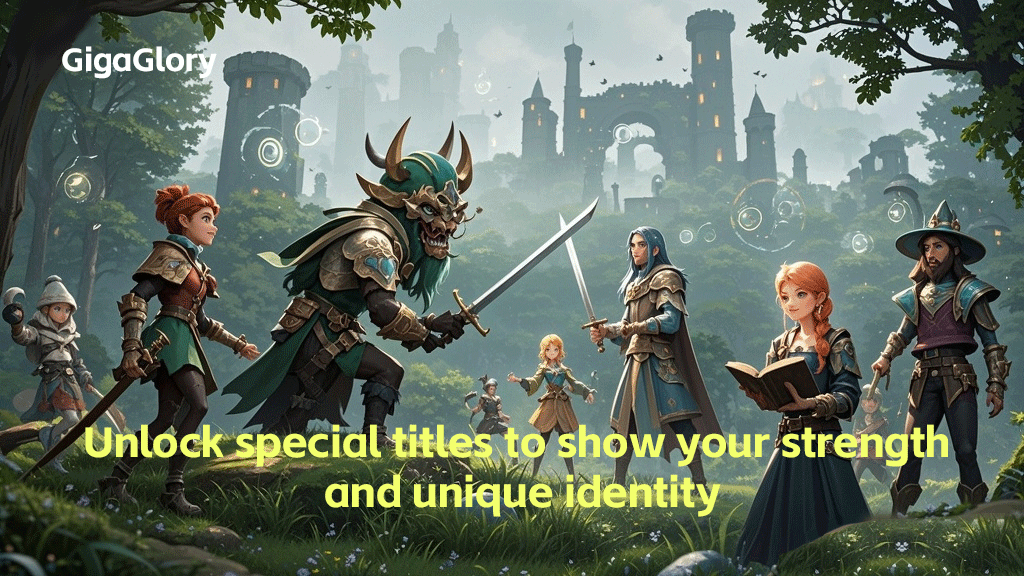From MMORPGs to Clicker Games: Exploring the Evolution of Interactive Gaming Experiences
The world of gaming has seen a staggering transformation over the decades, with interactive experiences evolving from the expansive realms of MMORPGs (Massively Multiplayer Online Role-Playing Games) to the surprisingly addictive nature of clicker games. This journey highlights not just technological advancements but also a shift in player preferences and social interactions within gaming. In this article, we'll explore the various stages of this evolution, focusing on important titles like Clash of Clans and the emergence of some of the great PC RPG games that shaped our gaming culture.
The Rise of MMORPGs
MMORPGs became popular in the late '90s and early 2000s, allowing players to dive into rich, vast worlds where they could interact with thousands of others. Games like World of Warcraft and Guild Wars set the stage for immersive storytelling combined with real-time player collaboration. What drew players in was not just the gameplay but the thriving communities and friendships that formed within these digital landscapes.
Key Features of MMORPGs:
- Immersive Worlds: Players could lose themselves for hours in fantasy realms.
- Player-Centric Progression: Experience gained through quests, battles, and teamwork.
- Complex Storylines: Engaging narratives that drew players into the universe.
- Social Interactions: Community-centered gameplay where friendships could blossom.
The Emergence of Clicker Games
As gaming audiences matured and diversified, so did their preferences. Enter clicker games — a genre that simplifies interaction to a mere click (or tap) on the screen. These games flourish on mobile platforms with titles like IDLE CLICKER and Cookie Clicker leading the way. The primary appeal lies in their straightforward mechanics coupled with a rewarding progression system that keeps players coming back for more.
Why Clicker Games Captivated Players
Clicker games in many ways gave birth to a style of gaming that fits the busy lifestyle of modern players. Here’s why they’ve become increasingly popular:
| Factor | Impact |
|---|---|
| Accessibility | Easy to learn, requiring minimal time. |
| Instant Gratification | Quick rewards keep players engaged. |
| Social Connectivity | Connect with friends and compete for leaderboard spots. |
Comparative Analysis: MMORPGs vs. Clicker Games
The shift from MMORPGs to clicker games marks a significant change in the gaming landscape. While MMORPGs offer social interaction and complex playing experiences, clicker games cater to players looking for simplicity and gratification. Here’s a quick comparison:
- Gameplay Complexity: MMORPGs are complex; clicker games are straightforward.
- Community Engagement: MMORPGs promote social interactions; clicker games can be solitary.
- Time Commitment: MMORPGs require more time; clicker games are designed for short bursts.
Popular Titles to Explore
For those curious about the best of both worlds, take a look at these game titles:
| Game Title | Type |
|---|---|
| World of Warcraft | MMORPG |
| Clash of Clans | Strategy/Clicker |
| Cookie Clicker | Clicker |
| Genshin Impact | Action RPG |
Conclusion
The trajectory from the immersive experiences of MMORPGs to the simplicity of clicker games illustrates the dynamic nature of interactive entertainment. As players continue to evolve in their gaming preferences, embracing both complex narratives and casual click-based experiences, the gaming industry is left poised for exciting future developments. No matter your preference, the vast world of interactive gaming offers something for everyone.
FAQs
- What are MMORPGs?
- Massively Multiplayer Online Role-Playing Games that allow for extensive social interaction and immersive gameplay.
- What is a clicker game?
- A casual game that requires players to click or tap quickly, generating resources or points with minimal effort.
- Can clicker games be considered real games?
- Yes, despite their simplicity, they offer engaging gameplay and can develop strategic thinking.
- What is the future of gaming?
- The future will likely blend immersive experiences with simplistic mechanics as technological advancements and user preferences continue to evolve.



